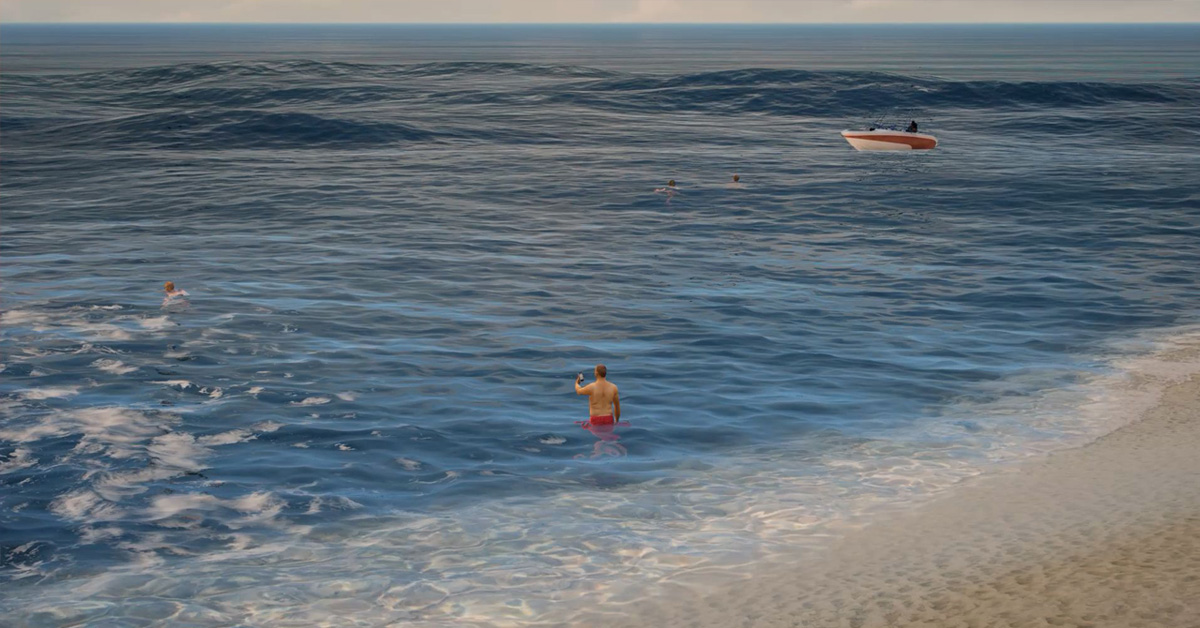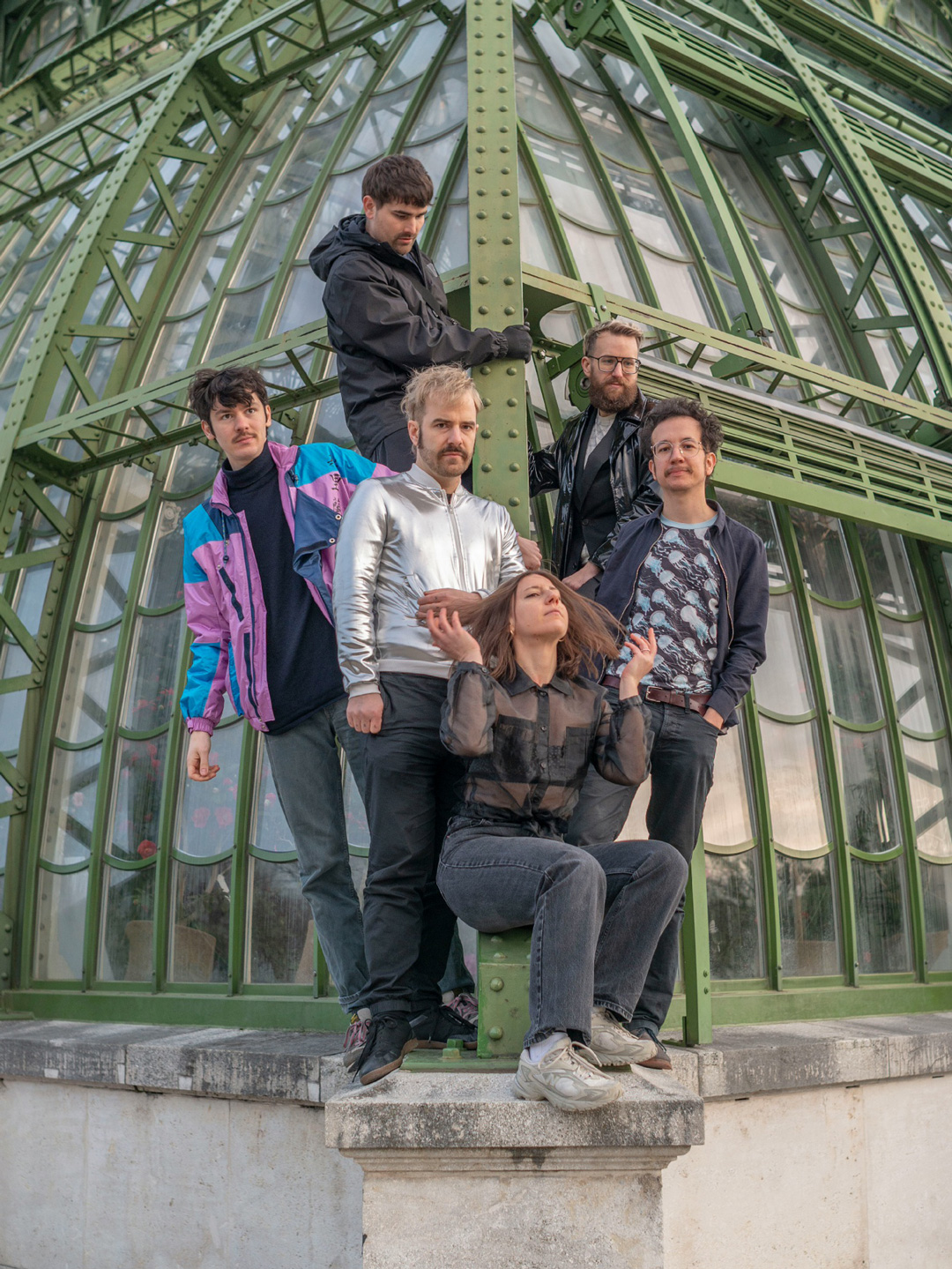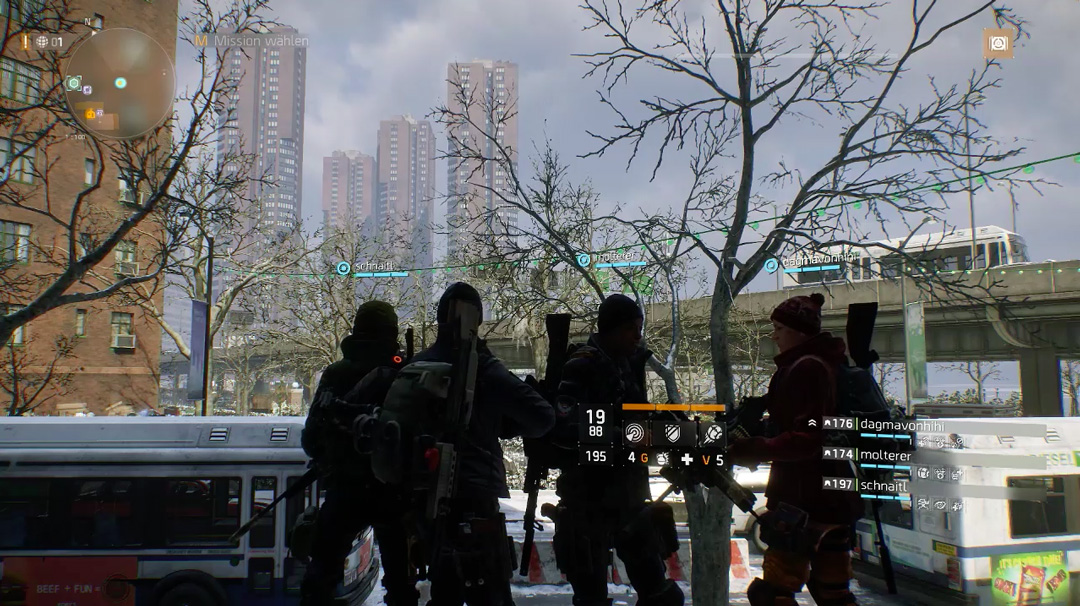VAF Guest Artist
Total Refusal Changes the Narrative of Mainstream Games

WeAnimate 2024-09-11 | wam#0048
This year’s VAF guest artist is the Austrian art collective Total Refusal. Total Refusal upcycles video games into an art medium, using them as a lens to analyze underlying assumptions about how we live and work. Founded in 2018, their work includes short films, installations, and real-time in-game performances.

Total Refusal’s projects have been recognized with numerous prizes, including the European Film Award, the Diagonale Film Award for the Best Short Documentary, the Contemporary Visual Arts Award of Styria Province, and the Vimeo Staff Pick Award. To date, their work has been screened at more than 250 film festivals, including the 2020 Berlinale, Doc Fortnight at MOMA New York, and IDFA Amsterdam. They have also appeared at a number of exhibition spaces like the Architecture Biennial Venice 2021, the HEK Basel, and the Ars Electronica Linz.
For a festival like VAF and its simulataneous conferences, which incorporate art and animation, games and immersive technologies, and cultural and critical analysis of the industry, Total Refusal is a perfect match.
According to their website, “Total Refusal is a pseudo-marxist media guerilla focused on the artistic intervention and appropriation of mainstream video games. We upcycle video games in order to reveal the political apparatus beyond the glossy and hyperreal textures of this media.” Video games reflect and amplify unspoken assumptions about society, culture, and capitalism, and thus serve as a perfect tool with which to analyze those assumptions. We spoke with Total Refusal founding member Michael Stumpf, who says:
Total Refusal: Video games are really the holy temple of a meritocracy. The meritocratic pipe dream of capitalism, which is never really fulfilled for most people, is upheld and perpetuated in games. If you really want to stir up a shitstorm in the industry, all you have to do is implement pay-to-win mechanics, which allows players to use money to circumvent hard work. It generates a ton of outrage and negative headlines, because people want to believe in the meritocracy of games.
In these games, you have a whole world that is entirely made for you to succeed in, but you have to succeed through the process of starting small and growing to dominate a world that is just waiting for you. The game gives you exactly the tools you need, and the instructions, and the rule set where you can be successful. You have the promise that you can and will succeed if you just employ the tools the right way. Even when grinding, you can feel some sense of relevance of this work, that it’s getting you somewhere and has a payoff, even if the rewards are just within the digital reality of the game. However, these underlying assumptions about the rewards of grinding within a game connect in interesting ways with the experiences of the modern worker, who engages in work that is equally repetitive and lacks meaningful rewards.

The work of the collective includes notable projects like Operation Jane Walk (2018), an interactive performance in which Tom Clancy’s: The Division multiplayer shooter is appropriated as the environment for a walking tour of post-apocalyptic Midtown Manhattan. The Operation Jane Walk documentary-style short film was nominated for several awards, and won the 2018 Vienna Short Film Award.
In Kinderfilm, Total Refusal examines a world in which the presence of children in GTA V is constantly alluded to, and yet children themselves are banished. A related theme appears in the installation Swings Don’t Swing, in which characters attempt to interact with playground equipment in a shooter game, with absurd results.
When asked what type of games the collective works with, Stumpf says:
Total Refusal: We are personally very interested in the indie game scene, and there are a lot of games that do things that are very different from the mainstream sector, but those are games that are only played by a small number of people, so they aren’t suitable platforms for our type of hegemonic critique.
Ideology works best when you don’t perceive it as ideology, so we tend to look at things that are considered normal, and analyze that and extract ideology from that. For that reason, we try to stay within the mainstream of the mainstream, because we are performing an analysis of hegemony. That’s why we have so many Ubisoft games and Rockstar games, because these are the games that even non-gamers have heard of, and they represent the absolute mainstream of the medium.

What makes you choose a specific game as a subject?
Total Refusal: Well, there are projects where we have played games intensively as gamers, and observed things that amused or bothered us, or struck us with a parallel to some political research we were doing at the time. So naturally we want to do a closer analysis of that particular game.
But there are also projects with the opposite flow: we want to do something on a specific topic, and we have to consider which game might be the right one, where we enter the game already with the mindset of doing something specific in that world. That was the case with our Cooking & Culling (2022) performance, for example, where we wanted to talk about the development from post-war to neo-liberal capitalism, and we wanted to present it in the format of a live show. We are all very familiar with the frameworks of game shows and cooking shows, so they are a good tool for this project. In the early days of postwar instructional cooking shows, the host is basically teaching you how to cook. Then cooking shows transitioned to fostering a celebrity cult of a (typically male) cooking star. You can see how the larger culture has changed by following the transformation of this single format over time. That’s how we had the idea of doing the performance in the format of a cooking show, using a cooking simulator and working within the game.

Many Total Refusal projects consist of a closer examination of the lives of background characters in games, the underlying assumptions of the game society, and how they reflect capitalist social structures. In the installation and film Hardly Working (2022), Total Refusal follows several NPCs in Red Dead Redemption 2 over entire in-game days, observing the daily lives of these “digital Sisyphus machines”.
Total Refusal: There’s a term: “ambient human presence,” coined by Alan Butler in his project Down and Out in Los Santos, where he acted as a photojournalist inside GTA V. The game represents homelessness and poverty as essential in order to create a credible vision of Los Santos/Los Angeles, and it’s quite striking how the portrayals of homelessness in the game and in his work are so similar to the way these things are portrayed in real life. The game developers have gone to a lot of work to cement these factors as part of normality, even though they have no impact at all on game play.
When I showed our film Hardly Working (2022) to my mom, her initial reaction was that the carpenter’s action was absurd, that it’s not a real portrayal of work, that he’s just repeating the same things over and over again with no end product. And of course that’s the conversation we want to have: how is that different from industrial labor in our society, which doesn’t have an end product because the laborer is not connected to the result of the work? You’re not producing to meet demand; you’re producing to create capital. Many people are in those kinds of jobs, and a huge percentage of people believe that their work doesn’t have any impact or benefit for society.
Despite the seriousness of the subject matter, and the complexity of the analysis, Total Refusal projects also have moments of humor and playfulness.
Total Refusal: You can’t just lecture at someone: you have to connect with them. It’s important to us that we try to reach outside our bubble and access larger audiences, and the humor that can be found in the absurdity of the game world is a great way to do so. Of course we are doing video essays about video games, capitalism, and Marxism, so it’s not like we’re going to air on national TV any time soon, but we still want to make sure our work is accessible to people who may not know much about it, and reach people outside of the gaming community.
This September, VAF attendees, as well as those attending CAGA and Game Expo in Viborg, will have an opportunity to experience a range of work from Total Refusal, including an exhibition, a screening of their short films, and a Total Refusal-curated screening of machinima films. For more information about the guest artist program, and everything else at this year’s VAF, check the program online at:
TotalRefusal
Credits
Text: Rebekah Villon
Photo: Courtesy of Total Refusal
Collaborators

WeAnimate Magazine is dedicated to all the people who animate and make things, lines, and ideas come to life.
WeAnimate ApS is founded and owned by The Danish Animation Society (ANIS) www.anis.nu
Tell us what you think? Tell us at hello@weanimate.dk | #weanimate | our Privacy Policy
